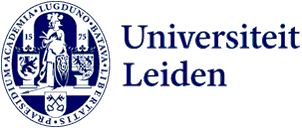
From a technical bachelor in Delft to a master's in Philosophy: ‘We need each other’
For three years, Wouter Schuit enjoyed studying Technology, Policy and Management at Delft University of Technology - only to switch to a master's in Philosophy in Leiden after his bachelor's. 'In both, you learn to tackle a problem in a structured way.'
Something in healthcare, communications or maybe sociology? As a secondary school student, Wouter found it difficult to choose what to study at university. The only thing he knew for sure was that it would definitely not be a technical study, as his brother did. And then he came across Technology, Policy and Management in Delft.
'That turned out to be a combination of everything I was interested in,’ he says. 'As a technology and policy manager, you map out a sociotechnical system both technically and socially, then advise on how to improve it. That can range from transport systems to communication systems, so you need knowledge of all kinds of fields, such as law, economics and ICT. They sometimes call us the bridge-builders of a company.'
‘You ask some difficult questions'
In that broad context, Wouter came across philosophy. 'I was often told that I was very philosophical and asked a lot of difficult questions, so when I went to Norway for six months, I took one programming and three philosophy courses there. There, for example, it was about the ethical side of technology. I thought that was super cool, so once back in the Netherlands I wrote my graduation thesis on the philosophy behind brain-computer interfaces. Partly due to my supervisor, also a philosopher, I discovered that I actually wanted to continue in philosophy.'
After a gap year, he made his decision: instead of a master's degree in Technology, Policy and Management, it became a master's degree in Philosophy, in Leiden. 'I did wonder for a while whether it was a smart choice,' Wouter admits. 'If I had done a master's in Public Administration, I would have had a more logical package. But yes, philosophy turned me on. Ultimately, I want to live by my heart, not by a piece of paper to get in somewhere.'
Confronting
Meanwhile, he is halfway through his master's and alternates studying with work experience. Wouter: 'Philosophy comes so close to who you are and the way you see the world. You really get shaken up in your beliefs from time to time. That's why I enjoy doing things that keep me with both feet on the ground. Last year, for instance, that was volunteering at a care farm and before that I worked as a barista.'
The latest addition to his CV is a so-called ‘Dream Team’ at TU Delft, in which students put a technical innovation on the map within a year that contributes to a better future. 'At Emergence, by combining “art & tech”, we try to make complex technology understandable for the general public,' Wouter says enthusiastically. 'For example, we want to get people to reflect on quantum physics through art. Quantum physics is almost impossible to explain, but with art, you can let people experience what it means.'
His master's degree helps him do this, Wouter believes. 'In Technology, Policy and Management studies, you learn to delineate a system and look for solutions within it. As a philosopher, you dare to ask out-of-the-box questions and take other perspectives seriously. That certainly comes in handy with such complex issues.'
Structured answers
In addition, Wouter sees many similarities between his studies. 'Ultimately, in both, you learn to formulate answers to big questions in a very structured way. Hopefully, one day I will be able to combine philosophy with the systems thinking that is part of technology and public management to solve big problems in society.'
